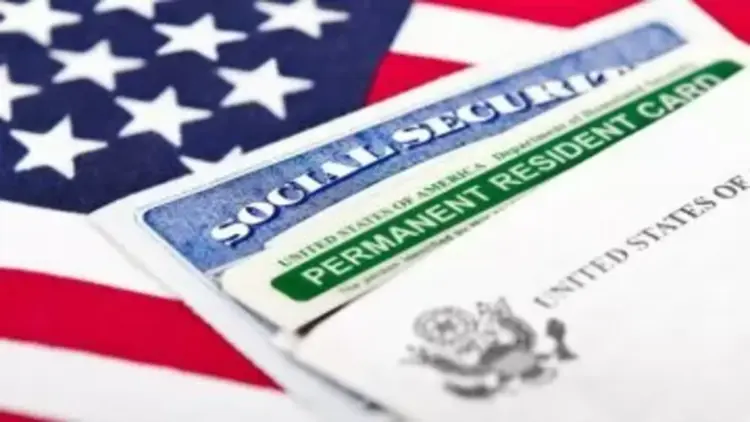Farewell to three historic attractions at Walt Disney World – Disney confirms their permanent closure in Orlando – Magic Kingdom among them
Neither hurricanes nor wars – fires in Alberta cripple 7% of Canada’s oil production and threaten to raise gasoline prices in the U.S.
Goodbye Tesla – JCB’s new hydrogen engine could be a game changer and challenge Tesla’s dominance
Being a migrant,
even if you have a green card
, is not easy, and now that summer is here, many fear that traveling outside the country could be a reason to lose their immigration status. That’s right, starting this June, those who travel abroad could face much stricter border controls (including interrogations and temporary detentions…) as approved by the Trump Administration.
They’ve called it a “national security issue”
and it affects mainly those residents who obtained asylum-based residency or have a criminal record. With notice time now reduced to 30 days, the risk of document seizure and cutbacks to immigration rights is real…
What’s going on?
Trump signed a Presidential Proclamation that has been implemented since June 9 and restricts visas from citizens of 19 countries and tightens the scrutiny for those who do not yet hold US Citizenship. Although permanent residents are formally exempt, the climate is getting quite hostile even for those with all their documents in order…
What triggers the alert
Any LPR (Legal Permanent Resident) may be questioned and detained when reentering the country..
Travelling to the country you requested asylum from. Returning to the nation you declared as dangerous can be interpreted as fraud and may lead to the revocation of residency.
Prolonged absences (more than 180 days). This is interpreted as “abandonment of residency” and authorizes the officer to conduct an inspection.
Criminal records or pending cases. Crimes involving fraud and other offenses increase suspicion and make detention easier.
The case of “easy target” trips
Those returning from Cuba or Venezuela (countries subject to visa suspension) have been the first to be interrogated. If your status comes from humanitarian parole or TPS, lawyers’ recommendation is clear: avoid non-essential travel.
Immediate consequences for the resident who gets caught
Once referred to secondary inspection, the officer can: confiscate your passport, temporarily hold your green card, begin an inadmissibility process, or place a stamp that complicates future naturalization. The Department of Homeland Security has reduced the response time to just 30 days, requiring quick legal action.
Can I lose my residency over a single detention?
Not automatically, but a removal process may begin if the officer concludes that:
- You lied on the asylum application.
- You broke the law.
- You gave up your residency by spending too much time abroad.
What should I do if I need to travel?
Well, now you’ll have to be much more careful if you need to travel, because the new immigration scenario, as you can see, is not very favorable for migrants. Even so, here are some tips in case you must travel:
- Carry your updated green card, the I-551 stamp in your passport, and your valid passport. Also, if you have them, carry proof of the reason for your trip and your ties to the country.
- Avoid staying outside the country for more than 180 days so you can’t be accused of abandonment.
- If you think you’ll be gone longer, apply for a reentry permit before leaving the country.
- If you applied for asylum for refuge-related reasons… Sorry, but it’s best not to return home for a while (at least for now while the situation settles).
- If you are interrogated, avoid evasive answers, respond honestly and respectfully.
Of course, if you have questions about your legal status, it’s best to have an immigration lawyer review your case and anticipate CBP questions.
What will happen now?
For now, immigrant and non-immigrant visas have been suspended for Cuban and Venezuelan nationals, including tourist visas (B1/B2), student visas (F, M), and business visas (J)… These policies come just as humanitarian programs such as parole (Cuba, Haiti, Nicaragua, and Venezuela) and TPS for Venezuelans are being canceled…
Immigration policy in 2025 is changing (a lot), so the only advice we can give is to follow the guidelines and be very careful if you need to leave the country, because you could be detained.




